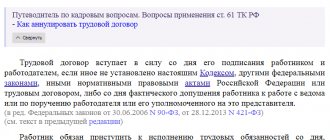A car donation agreement is a document that allows the donation to be given legal force in 2021. Without the agreement in question, the gift of the car has no legal effect, and the donor will still be considered the owner of the vehicle. The recipient will not be able to register a car in his name, sell it, or perform any other significant tasks. That is why it is so important to know how to correctly draw up a gift agreement, and what the consequences will be if this is not done or if a mistake is made in the document in question. In addition, the contract must be properly registered, following the strict procedure prescribed by law.
When can you sell donated real estate?
Subtleties and nuances You can specify additional points in the document: limit the validity period of the deed of gift or indicate who bears the costs when concluding the transaction. If this is not stated in the text, material costs in the form of state duties and taxes are paid by the donee. By agreement, they can be transferred or divided between the participants. In the text of the gift document when transferring real estate, it is often stated that the donor will live in the transferred living space. In this case, after his death, judicial confirmation of the rights of the donee is often required.
- Full name of the donor and recipient, passport details, residential addresses;
- Description of the property that will be donated;
- Date of conclusion of the act, signatures of the parties.
Where does the registration take place?
You can draw up a deed of gift yourself, or you can also seek help from a notary, realtor or lawyer.
Next, it and other documents must be submitted to the MFC, cadastral chamber or registry chamber. Here the rights of the recipient to the property will be registered.
If the deed of gift was not drawn up by a notary, it can be signed right in front of the employee who will accept the documents. In addition, before submitting documents you will need to pay a state fee. Its size will depend on whether the donor and the recipient are related, and in what kind.
How long will the deed of gift be? Re-registration of rights takes 10 days.
When does the Apartment Donation Agreement come into force?
The donation document comes into official force only when state registration . Thus, the transaction is considered completely and irrevocably concluded, and the recipient receives all property rights, and the donor is completely deprived of them.
- When does the deed of gift for an apartment come into force?
- When does the deed of gift come into force?
- How long does it take for the deed of gift to come into force?
The gift agreement comes into force only after registration. From the moment the data is entered into the state register, it is considered unlimited . That is, the validity period of the apartment donation agreement is not limited. The period can only be appealed through court.
The procedure for registering a deed of gift (read more...)
Negative sides
Despite the large number of advantages, there are also disadvantages to registering a deed of gift. These include:
- The donor and his family have the opportunity to challenge the document through the court, even in the event of the donor’s death. In this case, it is much more difficult to challenge the purchase and sale agreement.
- The tax amount is quite high for persons who are not close relatives of the donor (13% of the cost of the apartment) and foreigners (30% of the cost of the apartment).
- The recipient has the legal right to evict all residents from the donated apartment, not without the exception of the person who gave him the housing.
The above indicates that it is better to draw up a gift agreement with a notary. Thus, it will be more difficult to challenge the document, to recognize it as erroneous or illegal. In addition, the specialist will be able to suggest in which case which points would be advisable to add to the document in order to avoid troubles later.
Validity period of the deed of gift when issued independently
But if the document concluded at home has already passed state registration, then the question of its validity loses its validity.
The fact is that in this way it is already considered that the deed of gift has been concluded, there is a document “worked out”. There was a transfer of property to a certain person. The Civil Code specifies that any items or gifts in the amount of 3 thousand rubles or more must be transferred only with the execution of a deed of gift. But in fact, the document is concluded only if we are talking about a large amount. Thus, a deed of gift is most often drawn up when transferring a house, apartment, car, or valuables.
What can you give as a gift?
According to the DD, you can donate any movable or immovable property: a car, a stereo system, a smartphone, a plot of land, etc. Let’s consider the nuances in detail.
Real estate
According to Art. 130 of the Civil Code of the Russian Federation, property is considered immovable if its movement inevitably causes irreversible destruction:
- unfinished construction projects;
- houses, apartments, dachas;
- land;
- structures;
- other buildings.
If you own an apartment and all the documents for it are drawn up correctly, you can give it to another person without any problems.
Movable things
Movables are things that can be moved without damaging their condition and appearance:
- cars;
- Appliances;
- money;
- tools;
- furniture.
This is just a short list of movable items. You can give anything as long as the item belongs exclusively to you. In other cases, the consent of other owners will be required.
Features of the gift agreement
conclusions
- Deed of gift - an agreement on the right to transfer property from the donor to the recipient;
- The validity period of the deed of gift is unlimited. Comes into force from the moment the data is entered into the state register;
- A document is not considered valid if less than two signatures are indicated;
- You can specify additional conditions or effective times
- If the document is not certified, then the validity period of the gift agreement is no more than three years .
If the donor changes his decision, then it is possible to cancel the transaction . Since the stated date has not arrived when the transaction comes into force, that is, the apartment will be transferred to another person, it can be canceled. At such a stage, until the specified period, it will not be considered perfect.
How to terminate the contract?
Termination of a DD is carried out voluntarily or in court. In the first case, it is enough for the parties to enter into an additional agreement to the main agreement.
If the DD was certified by a notary, the agreement is subject to notarization.
Sample termination agreement
The document must contain the following information:
- personal data of the parties;
- details of the DD being terminated;
- a reference to the desire to cancel the deed of gift;
- date of termination;
- signatures.
Sample agreement on termination of a gift agreement:
Grounds for cancellation at the initiative of the donor
Based on Art. 578 of the Civil Code of the Russian Federation, the donor has the right to cancel the DD through the court for one of several reasons:
- the donee made a deliberate attempt on the life and health of the donor or his relatives;
- the recipient mistreats the donated item, there is a risk of irretrievable loss, and for the donor it represents great non-property value;
- death of the donor, if the donee dies before registering the transfer of ownership rights and such a possibility is provided for in the DD.
If the court satisfies the claim for cancellation, the donee undertakes to return the gift in its original form. If the donated item is lost, its value is reimbursed.
Important! In the event of the death of the donor due to the fault of the donee, the right to demand cancellation of the DD is transferred to the heirs. Also, such a requirement may be made by creditors if the donor has filed for bankruptcy. In the latter case, transactions made in the last six months before the citizen applied to the arbitration court are annulled.
Arbitrage practice
Judicial practice on the cancellation of donations is not very rich, however, from the available cases it can be concluded that a well-founded statement of claim and the provision of all evidence by the plaintiff is the key to a successful resolution of the case.
Having completed everything correctly, you can achieve the cancellation of the deed of gift in several meetings.
Here are some examples of real solutions:
- Decision No. 2-597/2019 2-597/2019~M-515/2019 M-515/2019 dated June 13, 2021 in case No. 2-597/2019;
- Decision No. 2-3438/2019 2-3438/2019~M-1925/2019 M-1925/2019 dated June 10, 2021 in case No. 2-3438/2019;
- Decision No. 2-58/2019 2-58/2019~M-57/2019 M-57/2019 dated May 16, 2019 in case No. 2-58/2019.
Briefly: the deed of gift is canceled through the court if the donee commits a crime against the donor or his relatives, or there is a threat of loss of property. The contract is voluntarily terminated by additional agreement.
When does the Apartment Donation Agreement come into force?
In case of donation of real estate, the following documents may be required in addition to the contract:
- When does the deed of gift for an apartment come into force?
- When does the deed of gift come into force?
- How long does it take for the deed of gift to come into force?
Today, a huge percentage of real estate transactions involve donations. Of course, this solution is most beneficial for transferring property between relatives. Sometimes the older generation prefers a gift agreement to a will, wanting to distribute real estate in advance. The gift agreement has its own nuances, which are recommended to be clarified before making the transaction.
Specified by the donor (read more...)
What documents should I prepare?
To register ownership of a new owner, you will need to submit to the registering organization:
- Passports.
- Deed of gift.
- Property ownership document.
- Consent from the donor's spouse (if the apartment belongs to jointly acquired property).
- An extract from the house register and a copy thereof.
- The original and a copy of the power of attorney when applying instead of one of the parties to its representative.
- Consent to the transaction of the guardian (if the donee is a minor or incapacitated).
- Receipt of payment of state duty.
Before taking documents to the registry office, it is recommended to make copies of them and keep them with you.
It is possible to request other documents. It all depends on the specific case. It would be better if you inquire in advance about the required package of documents by phone, or look at the information on the official website of the registering organization.
Registration of a deed of gift for real estate
In order for the gift agreement to come into force, the consent of both parties is required.
That is, the recipient may simply not want to accept the gift, and then the transaction will not be completed. If both parties confirm their agreement, then the deed of gift is registered and immediately comes into force. Once the contract is drawn up, and both parties confirm their consent to the transaction, it is considered completed. When donating real estate, the agreement is almost immediately registered in Rosreestr. The validity period of the deed of gift after registration is unlimited. That is, as soon as the transaction is completed, the recipient takes ownership legally.
Is certification required by a notary?
It is necessary to have a deed of gift certified by a notary if a share in the right of common property is being given, and only one owner is involved in the donation. Also, a notary’s signature will be required when alienating the property of a minor or person with limited legal capacity.
If you are giving real estate or a car purchased during marriage, and the recipient is not your spouse, you will need a notarized consent to the transaction.
Cost of notary services
The deed of gift certificate will cost 0.5% of the value of the donated property. Minimum – 300 rubles, maximum – 20,000 rubles. (Article 333.24 of the Tax Code of the Russian Federation). If a movable thing is donated, the tariff is determined by Art. 22.1 “Fundamentals of legislation on notaries”:
- children (born or adopted), brothers and sisters, parents - 0.3%, from 200 rubles;
- for other persons – 1%, minimum 300 rubles.
A fixed price is set for the agreement - 500 rubles.
The tariff is calculated on the basis of documents confirming the cost:
- Market. Indicated in an expert opinion issued by outstanding organizations or individual entrepreneurs that have a state license for appraisal activities.
- Cadastral. Confirmed by an extract from the Unified State Register.
- Inventory. Indicated in the BTI certificate based on the assessment results.
For real estate, it is relevant to use the cadastral value, for movable things - the market value.
Example:
A man gives a house and a car to a woman. Along with the house, according to the law, ownership is transferred to the land plot on which it is located. The cadastral value of real estate in total is 4,000,000 rubles. The market value of the car is RUB 3,000,000.
For certifying the donation of real estate by a notary, a fee of 0.5% is paid:
4,000,000 x 0.5% = 20,000 rub.
For donating a car, a notary fee is paid:
3,000,000 x 1% = 30,000 rub.
20,000 + 30,000 = 50,000 rub. – total amount.
Note! If you want to entrust the preparation of the DD to a notary, the service is paid separately. It is not included in the duty or tariff.
What is the validity period?
Validity period without registration The gratuitousness of the transaction is the main requirement for its implementation, because if the fact of a counter transfer of property, obligations or rights is recorded, the donation will be declared invalid (void) . Since donation can be much more profitable in some matters of alienation (transfer) of property, they often try to use it, simultaneously hiding the conduct of a parallel transaction.
Many people are concerned about how long such an agreement is valid and what to do after the deed of gift for real estate has expired. A real estate gift agreement must be registered with Rosreestr, otherwise the new owner simply will not take ownership of the apartment. The validity period of a registered deed of gift for real estate is unlimited. It does not require re-registration, extension, payment of additional fees, etc.
Recently, the number of transactions related to the gift of real estate has increased. Although the number of such transactions is comparatively lower than purchase and sale transactions, the share of donations is becoming increasingly noticeable. To some extent, this is a sign of the increased welfare of the population.
Donation, as a form of property disposal, is a special type of transaction, the distinctive feature of this type is absolute gratuitousness. The legislator has provided as a special, immutable condition for such transactions - the absence in the gift agreement of counterclaims (conditions) of the donor to the donee. If there is a counter-obligation in the contract for the donee to transfer the thing to the donor or grant a right, the contract is not recognized as a gift, the transaction is qualified as void (Clause 1 of Article 572 of the Civil Code of the Russian Federation). In this regard, this type of agreement presents a certain difficulty not only for citizens inexperienced in legal matters, but also for a certain category of lawyers. Since the gift of property is common between close people (relatives) and, as a rule, is selective in nature, the donor expects a grateful response from the “chosen one.” This explains the attempts of donors to somehow predict (determine) their relationship with the future owner in the text of the contract. Even the notarial form of execution of such agreements is not an absolute guarantee against possible violations of the gratuitousness conditions. In particular, the text of the contract includes conditions based not only on the will of the parties, but also directly provided for by housing and civil legislation (the right of residence of family members of the owner in residential premises); such a “condition” does not lead to the nullity of the transaction, since it is stipulated by law . In addition, there are a number of other conditions permitted by law and which do not affect the principle of gratuitousness. Let us consider what these conditions are using specific examples. To begin with, you should dwell on the features of the form and content of the gift agreement. Parties: donor and recipient. Despite the fact that the Civil Code of the Russian Federation provides broad powers to the parties to the gift agreement, at the same time it contains some restrictions. When deciding who has the right to be a party to a gift agreement, it is necessary to take into account the provisions of Art. 575 of the Civil Code of the Russian Federation. Donation of real estate is not allowed in the following cases: 1) on behalf of minors and citizens recognized as incompetent, by their legal representatives; 2) in relations between commercial organizations; 3) employees of educational organizations, medical organizations, organizations providing social services, and similar organizations, including organizations for orphans and children without parental care, citizens receiving treatment, maintenance or upbringing there, spouses and relatives these citizens; 4) persons holding government positions in the Russian Federation, government positions in constituent entities of the Russian Federation, municipal positions, civil servants, municipal employees, employees of the Bank of Russia in connection with their official position or in connection with the performance of their official duties. These prohibitions are actively used in judicial practice. However, due to the fact that the form of the gift agreement does not imply information about the official affiliation of the donee individuals, it is very problematic to establish the fact of the inadmissibility of a particular transaction at the stage of legal examination of the agreement. Essential terms of the real estate donation agreement. Civil legislation defines the basic requirements, compliance with which gives grounds to recognize a real estate alienation agreement as concluded. Such an agreement is considered concluded if an agreement is reached between the parties in the required form on all essential terms and the procedure for its state registration is completed (clause 1 of Article 432, clause 3 of Article 433 and clause 3 of Article 574 of the Civil Code of the Russian Federation). The donation of real estate allows for both a simple written and notarial form of execution of the agreement. Along with the condition on the subject of the agreement, the condition on the gratuitous transfer of property is essential for the gift agreement. This condition must be stated in the text of the contract. Essential for a gift is the presence of two important components: the will of the donor and the consent of the donee or, in accordance with Art. 33 of the Civil Code of the Russian Federation, the legal representative of the minor or the guardian accept the gift. At the same time, accepting property as a gift does not require drawing up an act of acceptance and transfer; references in the text of the agreement to Art. 556 of the Civil Code of the Russian Federation, since obligations related to the quality and completeness of the transferred property are inherent in compensated transactions. To accept the “gift,” a symbolic transfer of keys, documents, the text of the agreement itself, etc. is sufficient. Claims to the quality of the donated property do not give rise to the responsibility of the donor and are regarded as ingratitude. Acceptance of donated real estate does not require the consent of the spouse, since according to paragraph 2 of Art. 256 Civil Code of the Russian Federation, Art. 36 of the Family Code of the Russian Federation, such property is not the joint property of the spouses. At the same time, if property is donated by one of the spouses, the legal regime of such property should be clarified. Even if the property is registered as the property of one of the spouses, it will have the regime of common joint ownership if it was created or acquired through a compensated transaction during the marriage. In this case, the provisions of paragraph 2 of Art. 253 of the Civil Code of the Russian Federation, according to which the disposal of jointly owned property is carried out with the consent of all participants, which is assumed regardless of which of the participants makes the transaction to dispose of the property. It is necessary to distinguish a real estate donation agreement from agreements containing a promise to donate property in the future (preliminary agreements). The legislator applies a single term to these transactions, which have different legal consequences - “donation”. Real estate donation agreements (as opposed to preliminary agreements - “promises to donate”) are considered fulfilled from the moment of state registration; they cannot be canceled on the grounds contained in Article 577 of the Civil Code of the Russian Federation. The inclusion in the texts of real estate donation agreements of conditions containing the possibility of “refusing to fulfill the agreement in the event of a significant change in property, marital status, or health status” makes the transaction void on the grounds provided for in Art. 168 Civil Code of the Russian Federation. At the same time, in the author’s opinion, preliminary agreements (agreements of “promises to donate” real estate in the future) are subject to registration in the form of an encumbrance on real estate, while the conditions regarding the subject and gratuitousness of the transaction remain determining for this category of transactions (item 1) . clause 1. Article 8 of the Civil Code of the Russian Federation). Such transactions are encumbered by a promise; the donor has the right to terminate (cancel) unilaterally on grounds related to a change in family or property status, or to the behavior of the “potential donee” (Articles 577 and 578 of the Civil Code of the Russian Federation). In this case, the “failed donee” has no right to demand compensation for losses. As already mentioned, the unconditional gratuitousness of a gift excludes the possibility of including in the text of the contract conditions that can be regarded as “counter”, obliging the donee to respond, proportionate actions (Clause 1 of Article 572 of the Civil Code of the Russian Federation). Most often, a clause is included in the contract that assigns the donor the right to reside in the alienated residential premises. In a certain situation, such a condition may be based not on a counter, binding claim, but on a rule of law governing legal relations in the housing sector. So, if the donor and the donee are members of the same family, or the donee was moved into the premises as a family member, the donor remains to live in the donated apartment on the basis of Art. 292 of the Civil Code of the Russian Federation, as a member of the donee’s family. However, upon subsequent alienation of the object to another person who is not related to the resident, or upon donation to an outsider, the right to use the residential premises may be terminated. In this regard, we should not forget that a gift agreement cannot impose on the donee restrictions on his rights as an owner in relation to the transferred property (for example, a ban on alienation or other transactions). Therefore, the inclusion in the gift agreement of the condition “to preserve the lifelong residence of the donor” becomes an unacceptable counter-condition, since it limits the ability of the donee to dispose of the property during the lifetime of the former owner. Despite the unconditional gratuitousness of the gift, there are a number of conditions expressly provided for by law as permissible for the gift of real estate. The donor may include in the contract a condition for canceling the donation if the recipient’s handling of the donated property, which is of great non-property value to the donor, creates a threat of irretrievable loss. The cancellation of such a donation on grounds related to the threat of loss of property is carried out in court (clause 2 of Article 578 of the Civil Code of the Russian Federation). At the same time, the donor also has the right to file a claim for the return of the gift even in the case where this condition was not directly stipulated in the contract. Also, the donor may include in the contract a condition for the return of property if he survives the donee. In such situations, the notary has no right to include the property received by the donee (testator) under a condition in the inheritance mass. The heirs are obliged to return the preserved object in kind to the donor. In practice, the assumption contained in the law creates significant difficulties for copyright holders. Since the law does not contain a direct prohibition on the alienation of property donated under a condition, there is often nothing to return to the heirs. Therefore, if the return of property has become impossible as a result of purposeful actions (whether alienation of property by the donor or its destruction), including those associated with reluctance to return the property, the surviving donor has the right to file claims against the heirs for damages in court. Often, gift agreements include conditions for the cancellation of the consequences of the transaction and the return of property if the donee makes an attempt on his life, the life of one of his family members or close relatives, or intentionally causes bodily harm to the donor (Clause 1 of Article 578 of the Civil Code of the Russian Federation). Cancellation of a donation on such grounds is also possible only in court at the request of an interested party. Separately, we should dwell on cases where the gift agreement is a void transaction due to its sham. There are often cases when a gift agreement is drawn up by the owner of a share in the right to property to cover the purchase and sale. Thus, a potential seller does not want to cede property that is in common ownership to co-owners, although these persons have the right of first refusal to purchase a share. Either he does not want to waste time searching for co-owners whose whereabouts are unknown to him, or he knows that the co-owners do not intend to acquire his share, but may delay their response. Then the property is transferred, as it were, “under a gift agreement,” free of charge to the new owner, but money is still paid for it. This deal is clearly a sham. Such sham transactions, first of all, pose a real risk for the acquirer, since they contain the threat of subsequent loss of property. The fact that a new co-owner purchased property for money rarely remains a secret for the co-owners. As a result, interested parties, for example neighbors who have a pre-emptive right to purchase property, in accordance with paragraph 1 of Art. 181 of the Civil Code of the Russian Federation, within three years they can apply to the court with a demand to apply the consequences of the invalidity of a void transaction, and the limitation period begins from the day when the execution of this transaction began. The outcome of such a judicial review depends on the ability of the plaintiffs to prove that the “donor” and the “done” were actually bound by monetary obligations that give the transaction a compensated nature. In any case, the acquirer of a pretend “donation transaction” is guaranteed trouble. The execution of a gift transaction is similar to the execution of a purchase and sale agreement. The package of documents submitted to the Rosreestr body includes: - an application for state registration of the transfer of rights to a property, filled out at the reception and signed by the parties (in the event that a representative acts on behalf of the donor, the power of attorney must contain information about the subject of the gift and the donee – clause 5 of Article 576 of the Civil Code of the Russian Federation); - receipts for payment of the state duty and their copies (there can be three receipts, since the donor and donee pay separately - for the transaction in equal shares, the amount is 500 rubles on each side, respectively, for registration of the donee’s property rights 1000 rubles), total the amount of duty is 2000 rubles; — donation agreement in a quantity of at least two copies; — title documents for real estate (certificate of state registration of ownership, a document that is the basis for its occurrence (for example, a gift agreement, purchase and sale agreement, etc.)); — cadastral passport for the object, if the registration of the donor’s right with the Rosreestr authorities was not carried out; — other documents confirming the legal regime of the property and excluding the legal claims of third parties; It is up to the owner to decide whether to donate or sell owned property; regardless of the decision made, you should remember that the transaction must be carried out in accordance with the norms of current legislation, this is the key to your peace of mind, and often personal safety.
State registrar of the department Kovalev S.A. registration of transactions with real estate objects
When does the Apartment Donation Agreement come into force?
When drawing up a transfer agreement, ownership of the agreed apartment or other real estate passes to the donee immediately after the conclusion of the agreement and its registration in Rosreestr, therefore the apartment is excluded from the inheritance estate.
- When does the deed of gift for an apartment come into force?
- When does the deed of gift come into force?
- How long does it take for the deed of gift to come into force?
After three years, a new gift deed will have to be drawn up. Moreover, for a specified period of time, ownership of the apartment remains with the donor.
Validity period of the deed of gift (read more...)
Types of deeds of gift
Deeds of gift can be classified first of all according to the property that is being donated and according to the conditions contained in the document. In addition to property and any other things, with the help of a deed of gift, you can transfer rights or exemption from certain obligations.
There are two types of deeds of gift for an apartment:
- Real, when according to this document, any real estate is transferred as a gift to the recipient. The contract will be finalized after the property is transferred to the donee.
- Consensual. This deed of gift does not contain the property being donated, but only a promise to do so. The deal will be concluded only when the recipient becomes the owner of the promised gift.
When drawing up a consensual document, you must adhere to the following rules:
- Conclusion of an agreement in writing.
- Indication of a specific item (housing) that is being donated, as well as complete information about it.
- The transaction must be concluded voluntarily.
- The recipient must agree to be given real estate in the future.
What does the gift agreement provide for?
When deciding to donate an apartment or other property, the donor should think carefully about this step, because returning the subject of such a transaction will be very difficult. But if the decision has already been made, then it is recommended to contact a notary or an authorized lawyer who will help draw up the agreement correctly and provide for all the nuances of the transaction.
- the gifted person at his own request;
- the donor, if there are reasons provided for by law to cancel the deed of gift;
- a court decision if the legality of the gift agreement is challenged by the relatives of the donor.
Donation of real estate to a minor
Transferring housing to a minor is permitted by law. However, his presence during the conclusion of the contract is not necessary. One of the parents can represent his interests. The last one also signs the deed of gift.
When the donee reaches 14 years of age, he can already sign, but in addition to this, the signature of a parent or guardian will also be required.
The apartment that was gifted to the child will be used and disposed of by his representative until the child reaches adulthood. However, a parent representing the interests of a minor child does not have the right to sell an apartment unless there is consent from the guardianship council.
The deed of gift does not give the minor the right to sell the home without the consent of his representative and the guardianship authorities.
After reaching adulthood, the child can already fully dispose of the donated property.
Prohibition and restriction of donation
In accordance with Art. 575 of the Civil Code of the Russian Federation, donation is prohibited in the following cases:
- if it is carried out by minors or incapacitated citizens, as well as on their behalf;
- donations to employees of medical, educational institutions, organizations working in the field of social assistance and protection, and their analogues from citizens and their relatives who are receiving treatment, education or support there;
- citizens holding government positions, municipal employees, employees of the Bank of Russia, if the gifts are related to the duties they perform;
- donation between representatives of commercial structures.
An exception to the above rules are gifts whose value is less than 3,000 rubles .
Additionally
If a gift occurs as part of business trips or official events, it is not prohibited even if the value of the gift exceeds three thousand rubles . Moreover, when the value of the gift exceeds the specified value, it is considered municipal or state property.
Article 576 of the Civil Code of the Russian Federation defines the conditions for limiting donations.
- Organizations have the right to transfer an item belonging to them by right of management into the ownership of another organization or individual with the consent of the owner of the item. Gifts of minor value are an exception to this rule.
- Property owned by several persons can be donated only with the consent of all owners and applying the rules of Art. 253 Civil Code of the Russian Federation.
- It is possible to grant the right of claim only if the rules of Articles 382 - 386 of the Civil Code of the Russian Federation and 388 - 389 of the Civil Code of the Russian Federation are observed.
- A donation associated with the performance of some work in place of the donee can only occur in compliance with Art. 313 Civil Code of the Russian Federation.
- If the donation is made by a third party who has a power of attorney, he can only donate the property specified in it.
What to choose?
Donating a home is a convenient and profitable transaction for many people.
It is recommended to resort to it in the following cases:
- Close relationship between the donor and the recipient, when the transfer of housing is considered a formality in order to re-register ownership of it.
- The donor has other housing and a desire to transfer other property in the form of an apartment as a gift to another person.
- The presence of registered citizens in the apartment, whose eviction by other means did not produce results.
- The donor has confidence that after the rights to the apartment are transferred to another owner, he will not lose the right to live in the donated apartment.
In situations where the owner of the apartment does not have full trust in the person to whom he wants to transfer the housing, and his desire to receive during the transaction some kind of “insurance” regarding the further use of the housing or benefits from the transaction, it is better to use other documents rather than a deed of gift .
Let's look at what options there are:
- Will. According to this document, property will be transferred only after the death of its owner.
- Barter agreement. Under such an agreement, something is given in return for the transferred apartment.
- The purchase and sale agreement is the sale of an apartment and the receipt of payment for it.
- Rent agreement. According to such a document, the apartment is transferred to the new owner with the condition of paying its cost in installments or maintaining the former owner.
Thus, it is advisable to choose a deed of gift in cases where there is a high level of trust and family ties between the donor and the recipient.
Features and pitfalls of donating housing with multiple owners in 2021
One of the most common situations considered problematic is the donation of housing that is owned not by one owner, but by several persons. This legal regime presupposes the so-called shared ownership of real estate, suggesting (according to paragraph 2 of Article 244 of the Civil Code of the Russian Federation) an allocated share of the object of each owner.
In the case when the size of the share of each owner was not determined by agreement or by the legislator, the shares of the owners are considered equal (1 paragraph 245 of Article 245 of the Civil Code of the Russian Federation). Thus, based on the information described in paragraph 2 of Article 246 of the Civil Code of the Russian Federation, each of the owners has the legal right to donate their own share to another person.
Important
It is worth noting that donating shares of housing in 2021 allows you to actually bypass certain regulatory restrictions. For example, if the alienation of real estate is carried out for compensation (for example, purchase and sale), the transaction requires, in accordance with Article 250 of the Civil Code, taking into account the right of the owners to make the so-called pre-emptive purchase.
However, since donation is a gratuitous transaction, it allows you to transfer your own share of the property without such an obligation. For the same reason, this opportunity is quite often used by unscrupulous persons who disguise compensated transactions with donations, which is regarded by the legislator as a sham donation agreement (2 paragraph 170 of Article 170 of the Civil Code of the Russian Federation).
One of the homeowners has the right to give it to another owner. In this case, the donee’s share will be increased by the additional share he received.
In cases where property owners wish to donate their shares to one of the owners, the transaction is regulated by paragraph 1 of Article 246 of the Civil Code. That is, the disposal of shared property becomes possible thanks to the agreement of all owners who have a share of the object of the transaction. Simply put, in this case, the owners do not give shares, but a single object of right.
Legislative framework
Alienation of residential premises on the basis of a gift agreement is carried out in accordance with the norms of various legislative acts. The main provisions are spelled out in the Civil Code (Chapter 32 of the Civil Code of the Russian Federation), which establishes the concept of a gift agreement, its form, cases of refusal, as well as restrictions and prohibitions on the transaction.
The registration procedure necessary to make changes to the Unified State Register when the owner of real estate changes is regulated by the Law “On State Registration of Real Estate” dated July 13, 2015 No. 218-FZ.
When donating an apartment between relatives, the norms of the Family Code of the Russian Federation are taken into account, and the procedure for paying personal income tax and exemption from such tax liability is regulated by Chapter. 23 of the Tax Code of the Russian Federation.
How is the deed of gift terminated?
The attorney can pick up the registered documents. The registration period should not exceed 1 month, in Moscow for residential premises 14 calendar days, the receipt must indicate the end date of registration of documents. The difference between a deed of gift and a will and sale is that the gift immediately goes into the use of the donee. An important condition of the contract is gratuitousness: the gift is transferred free of charge, on a voluntary basis.
If you are afraid that you will not be able to meet the deadline, then it is better to make a written promise to commit an act of donation of this or that property. You can have this promise certified by a notary for peace of mind for both parties.
Features of tax payment
Let's consider the rules according to which tax in the amount of 13% of income when donating must be paid:
- If the contract indicates the cost of an apartment that is 70% lower than the cadastral price, it will be considered invalid. In this case, the tax percentage will be calculated from the cadastral value.
- The tax rates for donating a share of real estate are the same as for donating an entire apartment.
- Direct relatives of the donor (husband, wife, grandmother, grandfather, brother, sister, mother, father, daughter, son, grandson, granddaughter) are exempt from paying this tax.
- Persons who must pay the above tax include second-degree relatives of the donor or persons unrelated to him.
- If real estate is transferred to a foreign citizen or non-resident of the Russian Federation, the tax rate is not 13%, but 30% of income.







